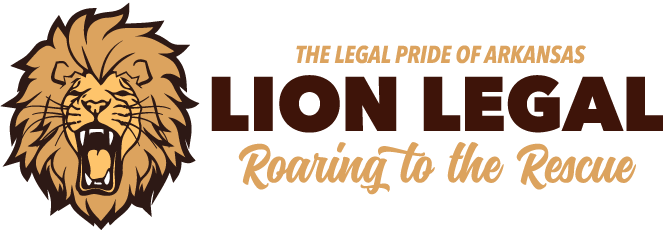Is Lion Legal the right law firm for you? Find out today. Schedule a complimentary phone interview now.
Chapter 13 Bankruptcy vs. Chapter 7 Bankruptcy
Arkansas Chapter 13 Bankruptcy
Chapter 13 is what is commonly referred to as a “restructuring” or “wage earner” bankruptcy. In simple terms, a person who files Chapter 13 is saying that they have some ability to repay creditors, unlike Chapter 7, but cannot repay all of their debts as they are currently situated.
In Chapter 13, your debts are reorganized into one, more affordable payment. Secured debts on things like vehicles, furniture and other property are repaid under terms proposed by your case, rather than the terms of the contract.
For example, if you have 33 months remaining on a car note that is set at 14% interest, that debt will be restructured under a bankruptcy plan that will be from 36 to 60 months in length, and the interest rate will be a bankruptcy specific interest rate that is at current no higher than prime interest plus 1%-3%, and is frequently lower than that.
Unsecured debts like credit cards or medical bills, unless required by law, typically do not receive a specific payment or percentage that they are to be paid. Your home debt can be left out of a Chapter 13 payment if you are current on the home, otherwise it will be paid through the plan and a certain portion will be paid each month to catch up missed payments.
Who can file Chapter 13 Bankruptcy?
Typically, people who choose to file under Chapter 13 are doing so because their income mandates that they must, or they are trying to reorganize their secured debt and prevent a foreclosure, repossession or garnishment.
Chapter 13 will also freeze interest and penalties on tax debts, and allow you to repay them through the Chapter 13 plan. Because most creditors receive something under Chapter 13, some creditors have a preference for this type of case, and the law certainly has a preference for it. One of the major thrusts of the most recent change in the law was to force more people to file under this Chapter. Chapter 13 is extremely useful for averting foreclosures, repossessions, garnishments and tax levies.
Chapter 13 Payment Details
What your specific payment would be in Chapter 13 is entirely dependent on your individual circumstances and the facts of your case. The absolute minimum monthly payment available is around $150.00 per month for 36 months at this time.
To determine your payment, you must look at what you are trying to pay for and how much disposable income you have left each month after reasonable living expenses. Our firm can usually pinpoint very accurately what your payment will need to be to successfully complete the case.
In Chapter 13, a Trustee is appointed by the government to take your monthly payment and disburse the funds to the creditors in the order they are entitled to funding. In addition to processing your monthly payments, the Trustee will also verify that you have completely and accurately filled out your bankruptcy paperwork, as well as verifying that you have met other filing requirements.
Arkansas Chapter 7 Bankruptcy
Chapter 7 is what is commonly referred to as a “liquidation” or “straight” bankruptcy. A person who files Chapter 7 is saying that they can no longer afford their bills, and they are asking for relief of them, subject to other provisions of the law. In essence, when you file Chapter 7, you list your debts and your assets, and it is assumed that you are requesting discharge of all of your debts.
On certain secured debts, like a home or vehicle, you have the option of surrendering the property and being forgiven of the debt, or keeping the property and paying per the terms of the contract. If you keep the property, you may be required to enter into a reaffirmation agreement which states that the contract will continue as if you had never filed bankruptcy as to that debt. Unsecured debts that are dischargeable will be discharged, and you will no longer be required to make payments on them.
Who can file Chapter 7 Bankruptcy?
The new bankruptcy laws put certain limitations on who may file Chapter 7 based upon household income. There can be other restrictions on who may file for relief under Chapter 7, but Chapter 7 is far from dead as reported by many news agencies on the eve of the bankruptcy laws changing in 2005.
In our practice estimations, at least 85-90% of those individuals/couples who could have filed under Chapter 7 under the old law still can. However, in some cases the calculations that are involved in what Congress calls the “means test” are so complicated that special software is required to determine whether someone is eligible to file for Chapter 7 or not. Two general requirements for bankruptcy are that you must have received qualified “credit counseling” and have filed taxes, if you are required to, for the past four (4) years.
Chapter 7 vs. Chapter 13 Bankruptcy
Chapter 7, unlike Chapter 13, is not a repayment Chapter. Other than the fees and costs you pay to file the case, you do not make payments to a Trustee as you do in Chapter 13. In Chapter 7, you pay the fees and costs set forth by your attorney, and then you will only be making payments on secured debt that you are keeping and your living expenses thereafter.
One of the primary advantages of Chapter 7 is that the entire case is usually completed within six (6) months of filing. There can be other advantages, but they are case specific and that information can be given to you during your free initial consultation. If you are several payments behind on a car or home that you wish to keep, it is generally not advisable to file a Chapter 7, as it does not enable you to catch the payments up over time as a Chapter 13 does.
Additional Details
In either Chapter 7 or Chapter 13, a “Trustee” is appointed to oversee your case. The function of a Chapter 7 is to insure that you have met basic filing requirements, that your bankruptcy documents are truthful and accurate, and, if there is property that is not protected by law, to sell property to pay unsecured creditors.
In over 85-90% of the Chapter 7 cases we file there is no property that is not protected by law. The Federal law gives rather generous “exemptions” in many different kinds of property. An exemption is created by the law saying that there is a certain amount of value in property that you are allowed to retain.
There are many exemptions for homestead, household goods, clothing, tools, vehicles, retirement accounts and more. Please remember, most people do not exceed the exemption levels, and you will need to speak with a qualified attorney for complete advice on the subject. It is our job to help you arrive at fair values from property, and to determine to what extent the law allows you to protect the property.
The Law of the Jungle is changing.
Lion Legal is making it happen.
That's why we're the Legal Pride of Arkansas.
Thank you for visiting the website of Lion Legal. This site is for informational purposes only. None of the information is intended to, nor does, constitute legal advice or the formation of an attorney-client relationship. The information is not guaranteed to be correct, complete, or current. You should not act or rely on any information at this website without seeking the advice of an attorney. Any information that you send us in an e-mail message might not be confidential or privileged, and sending us an e-mail message will not make you a client of Lion Legal. This website contains links to other resources on the Internet. The links are not intended to state or imply that Lion Legal sponsors or is affiliated or associated in any way with the information at those other websites.


